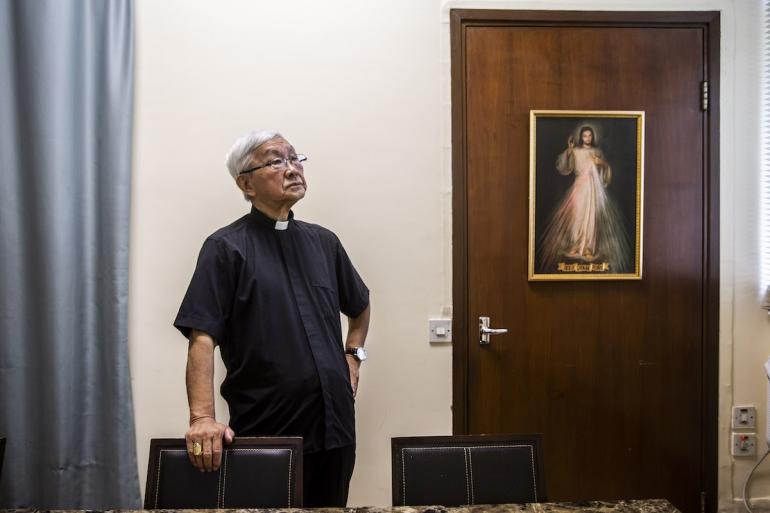Hong Kong cardinal hits German broadcaster over Sino-Vatican coverage

Cardinal Joseph Zen of Hong Kong said he was “disappointed and angry” over a report released by German broadcaster Deutsche Welle on the controversial deal between Beijing and the Vatican.
A report on Radio Free Asia said the cardinal took issue with the framing of an interview aired on Deutsche Welle on Oct. 28.
Cardinal Zen said the German state funded broadcaster invited its religious affairs correspondent to counter his criticism of the deal without informing him that this would happen.
“After watching it, I was disappointed and angry,” he was quoted as saying.
The cardinal wrote on his blog that the interview “turned out to be the first half of the item” while the second half was “an interview with ‘our religious affairs correspondent.'”
“You ask to interview me … then you arrange for someone else (who merely parrots the Vatican’s words) to counter what I said … and then you end the item with this, without allowing me to defend myself or explain my views again,” Cardinal Zen wrote.
“Curious: Is your organization actually funded by the German or Chinese government?” he added.
Deustsche Welle said the cardinal’s allegations are “baseless,” saying that its religious affairs correspondent, Martin Gak, had been brought in to give background and context.
“The fact that we had a journalist give background and context for the benefit of our viewers was absolutely called for in regard of the complexity of the story,” said a spokesman of the German radio.
In the Deutsche Welle interview, Cardinal Zen repeatedly slammed the renewal of the Vatican’s deal with China.
The agreement, which was re-signed last month, calls for China to formally recognize the pope’s authority in the Church, while the Vatican in turn would recognize the legitimacy of bishops previously appointed by Beijing.
In the Deutsche Welle interview, Cardinal Zen said the 2018 agreement between the Vatican and China left millions of underground Catholics with no support from Rome.
“[In] the two years since the agreement, things went very wrong, because the underground [Church in China] received no support from the Vatican,” Cardinal Zen said.
“The Holy See doesn’t give new bishops to the underground [Church]. They give many bishops to the official Church … [they] made them legitimate,” he said.
Cardinal Zen said “the underground (Church) feels abandoned. Betrayed. Because they [were the ones who stayed] faithful to the authority of the pope.”
The Deustsche Welle report had its religious affairs correspondent saying that the Vatican’s position is “fairly understandable.”
“They concentrate on engagement because they think that [no agreement] … leaves the Catholic communities in China at a very serious disadvantage,” said Gak.
“How is the Vatican to calculate how to protect these communities other than to some degree engaging the Chinese Communist Party?” he added.
Gak said letting China do as they please is “no solution at all” as it “leaves all of those people in a very precarious situation.”
Cardinal Zen, however, said: “How can they say that a bad agreement is better than no agreement?”
“A bad agreement is an agreement which is immoral, which is against our faith,” he said.
The renewal of the agreement between China and the Vatican was signed despite a national crackdown on religious organizations that are not recognized by the Chinese government.
There are nearly 350 million religious believers in China in 2017 with about 10 million Catholics, and of the figure, 5.7 million are members of the state-sanctioned community. - LiCAS.news
Radio Veritas Asia (RVA), a media platform of the Catholic Church, aims to share Christ. RVA started in 1969 as a continental Catholic radio station to serve Asian countries in their respective local language, thus earning the tag “the Voice of Asian Christianity.” Responding to the emerging context, RVA embraced media platforms to connect with the global Asian audience via its 21 language websites and various social media platforms.














